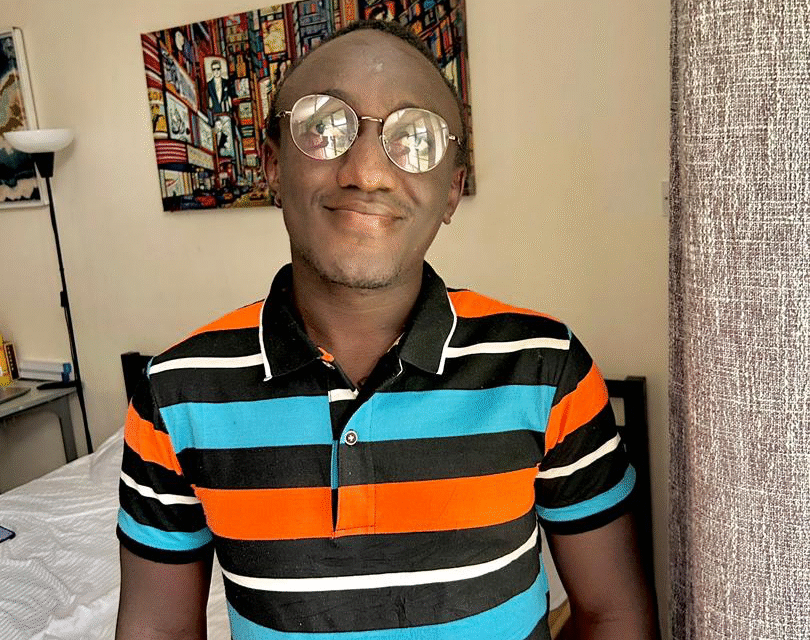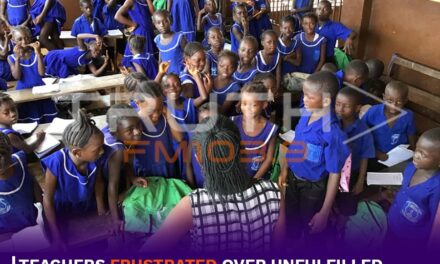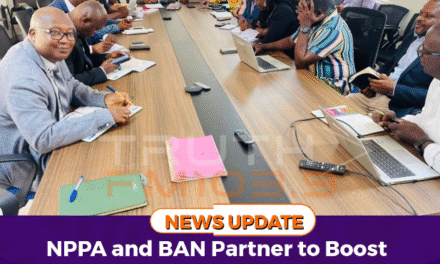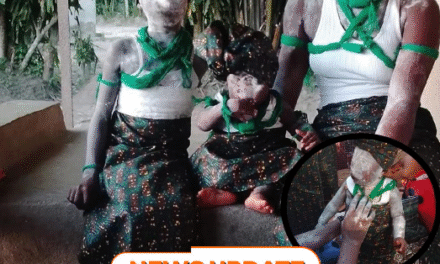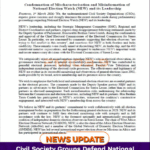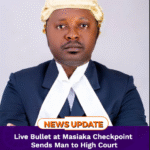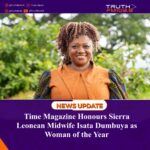By Ibrahim Mansaray
Freetown 25th August 2025- Abdul Rahim Bangura has just completed his final law exams at Fourah Bay College, and if everything goes well, he will graduate later this year. His academic achievement, however, carries a unique weight. As a visually impaired student, Abdul Rahim may soon become one of the very few blind lawyers in Sierra Leone, a feat made possible through extraordinary resilience, the support of kind strangers, and his unwavering belief in education.
Abdul Rahim wasn’t born blind. His life changed dramatically in 2012 while preparing to take his Basic Education Certificate Examination (BECE). A serious illness left him blind, permanently altering the course of his future. After recovering, he enrolled at the Milton Margai School for the Blind, where he began to reassess his dreams.
“Before I lost my sight, I wanted to become a doctor,” he told Truth Newspaper. “But after the illness, I had to rethink everything. That’s when I turned to law.”
From Prince of Wales to FBC: A Journey of Persistence
After taking two years at Milton Margai School for the Blind, Abdul Rahim gained admission to the Prince of Wales School. There, he quickly proved his academic abilities, consistently placing among the top students.
“At Prince of Wales the principal constantly berated the other pupils for falling behind a visually impaired pupil like him,” he jokingly said.
But the road to university wasn’t easy. He took the West African Senior School Certificate Examination (WASSCE) four times, showing remarkable persistence until he secured admission to Fourah Bay College.
During his WASSCE preparation, Abdul Rahim suffered a personal tragedy. His mother, a pillar of support, passed away from a stroke, making him a complete orphan. What was a devastating loss that could have caused him a huge setback, only strengthened his resolve to succeed. “My elder sister, a police officer, and some family members backed me with all they had,” he said.
Support from Classmates and Lecturers
When Abdul Rahim enrolled at Fourah Bay College, his physical and financial challenges continued, but he found a lifeline in his university community. His classmates rallied around him, purchasing a voice recorder and batteries to help him keep up with lectures, recording sessions for him, and sometimes even covering his transport fare. His lecturers were also supportive, ensuring he had a reserved seat at the front of the class and assisting him wherever possible.
“During my freshman year, one lecturer encouraged the class to support people like me, and my classmates did,” he said, showing appreciation.
But while his life at college was encouraging, things were different at home.
A Hostile Home and a Near-Tragedy
Abdul Rahim’s home life was marred by tension. His half-siblings, he says, were often unkind and unhelpful in assisting with his mobility. In one particularly low moment, he discovered that his study notes had been stolen, allegedly by a sibling. The betrayal nearly pushed him to take his own life.
“It was one of the darkest times in my life,” he said. “I felt like giving up. I asked why strangers are kind to me but some of my family members are not”, he recalled, almost breaking into tears.
Thankfully, a classmate stepped in helping him re-record his notes and connecting him with his father, who generously offered to pay Abdul Rahim’s transport to and from campus until the end of his studies.
Institutional Barriers and Unpaid Fees
Abdul Rahim’s visual impairment also meant that he couldn’t write exams in regular classrooms. Instead, he sat his tests at the exams office, which often led to delays in his scripts reaching lecturers sometimes delaying the publication of his results.
He also had to navigate FBC’s multi-level buildings without assistive infrastructure like ramps or elevators.
“Sometimes people pass me by not knowing I need help,” he said.
While his studies were funded through the Sierra Leone Government’s Grant-in-Aid (SLG) scheme, the scholarship did not cover all university charges. These “extra-charges” are to be covered by the student.
As it stands, he still owes several extra fees, an issue he fears could prevent him from graduating. “If my years three and four charges are not paid, I fear I may not graduate”.
Hope for the Future and for Others Like Him
Despite the challenges, Abdul Rahim remains hopeful. If he is able to clear his arrears and graduate, he intends to pursue further legal education, possibly even joining the ranks of Sierra Leone’s few blind legal professionals.
He also hopes his story will spark reform.
“I want to see proper systems in place for people with disabilities especially in our universities,” he said. “Accessible buildings, timely support, and inclusive policies. No one should have to fight this hard just to study.”
Abdul Rahim’s journey, marred by hardship but driven by hope, is beyond a personal triumph, it’s a demonstration of determination, resilience and ability in disability.
